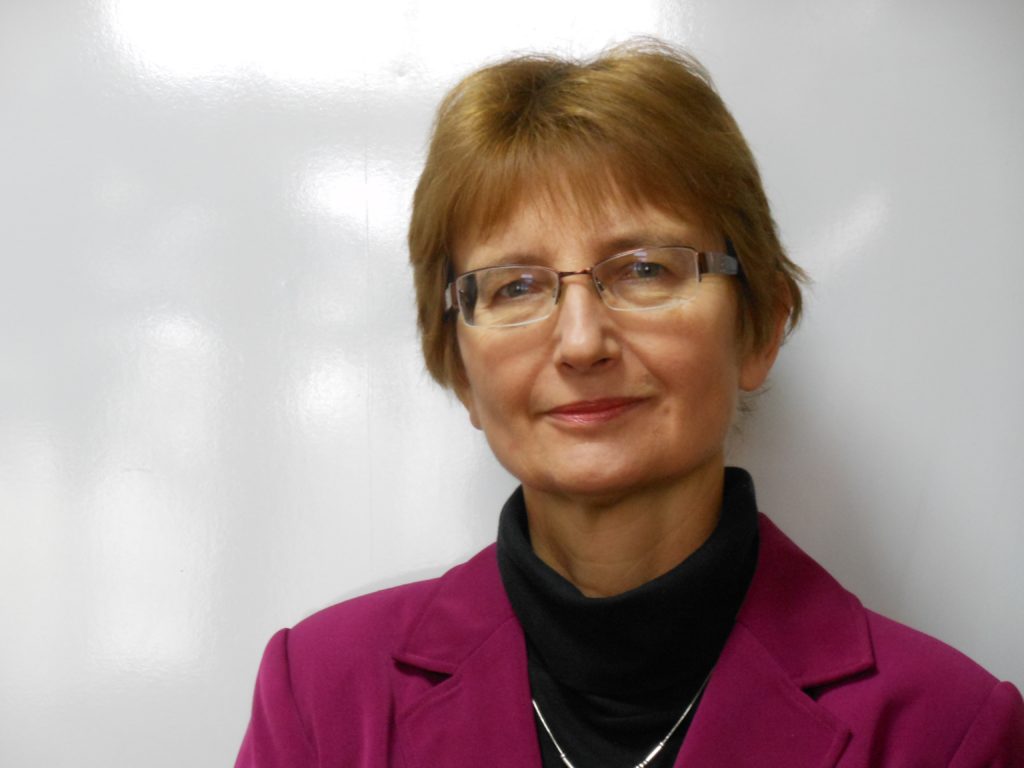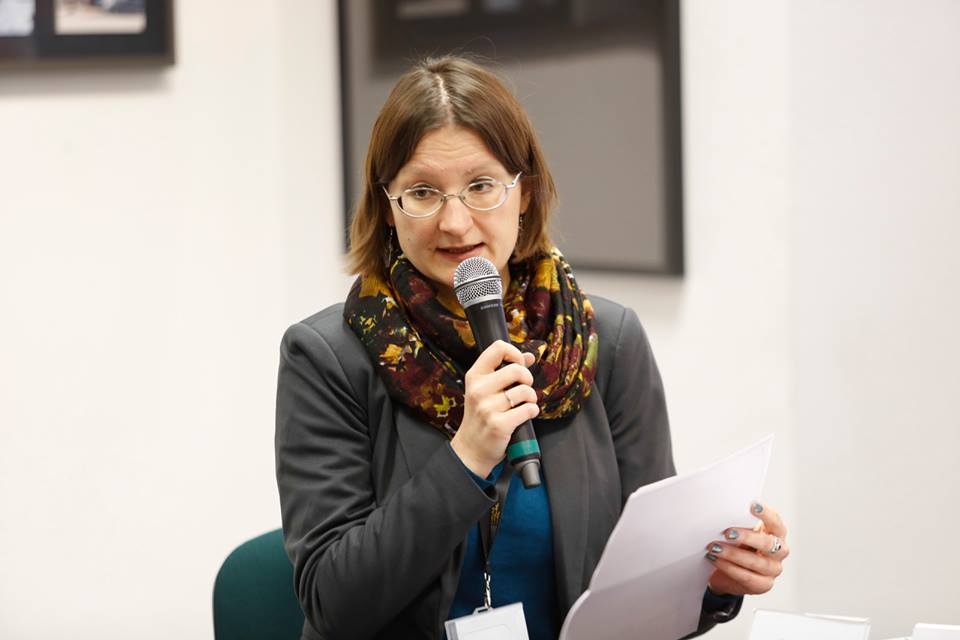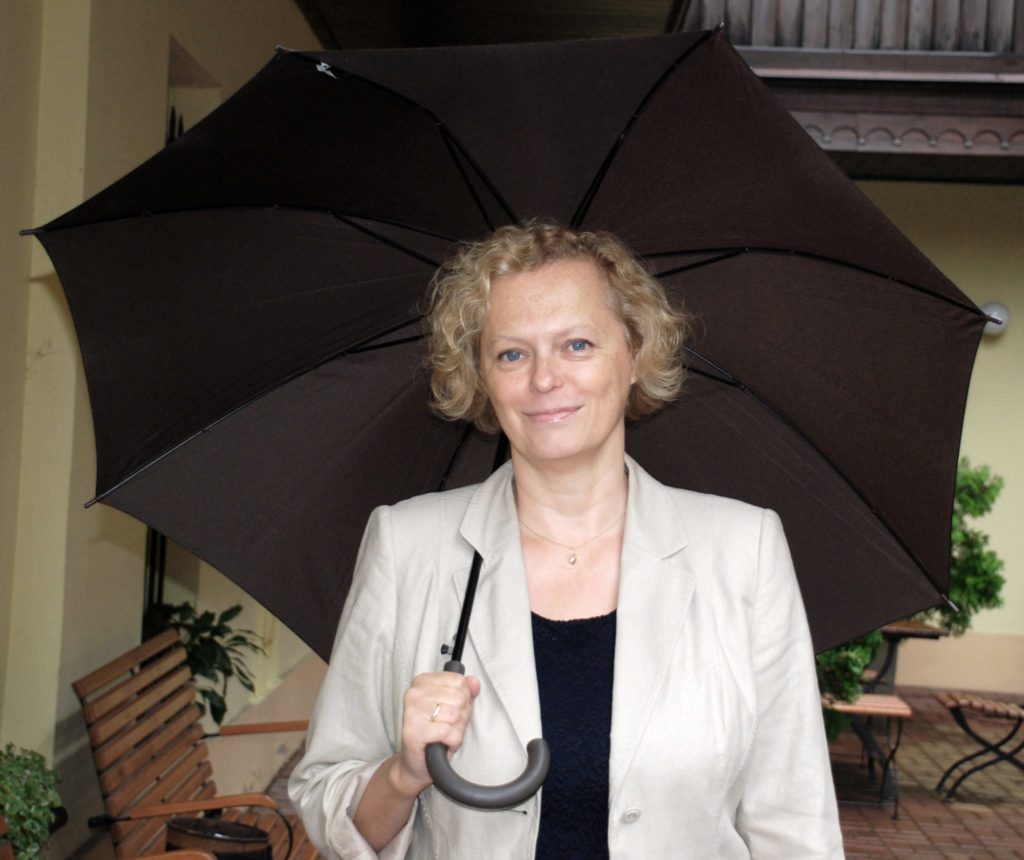
The Polish Association of Yiddish Studies was established in 2010. The first Chair of the Board was Prof. Monika Adamczyk-Garbowska in 2010-2013, who is a professor of the Linguistic Department at the Maria Curie-Skłodowska University in Lublin; in 2000-2011 she was the head of the Department of Jewish Culture and History; she is a translator from English and Yiddish. Among many others, she has published: Polska Isaaca Bashevisa Singera – rozstanie i powrót (1994), Contemporary Jewish Writing in Poland: An Anthology (2001, together with Antony Polonsky), Odcienie tożsamości. Literatura żydowska jako zjawisko wielojęzyczne (2004), Kazimierz vel Kuzmir. Miasteczko różnych snów (2006), Tam był kiedyś mój dom… Księgi pamięci gmin żydowskich (2009, together with Adam Kopciowski and Andrzej Trzciński), Następstwa zagłady Żydów. Polska 1944-2010 (2011, with Feliks Tych – in English as Jewish Presence in Absence: The Aftermath of the Holocaust in Poland 1944-2010 [2014]. In 2004 she was awarded with an academic prize named after Jan Karski and Pola Nireńska for study in the field of Yiddish, and in 2016 she received Irena Sendler’s Award.

In 2013-2016 the Chair of PAYS was Prof. Joanna Nalewajko-Kulikov, professor at the Polish Academy of Science, editor in chief of Acta Poloniae Historica. Her field of interest is the history of Eastern European Jews in the 19th and 20th century, and the history of Yiddish culture, especially the press and Polish-Jewish relations. She is the author of: Strategie przetrwania. Żydzi po aryjskiej stronie Warszawy (2004), Obywatel Jidyszlandu. Rzecz o żydowskich komunistach w Polsce (2009) and Mówić we własnym imieniu. Prasa jidyszowa a tworzenie żydowskiej tożsamości narodowej (2016). She was an editor and co-editor of Trudny wiek XX (2010, with G. P. Bąbiak), Studia z dziejów trójjęzycznej prasy żydowskiej na ziemiach polskich (XIX-XX w.) (2012, with G. P. Bąbiak and A. J. Cieślikowa) and Lesestunde/Lekcja czytania (2013, with G. Krzywiec, R. Leiserowitz, S. Lehnstaedt). She edited memoirs of Cwi Pryłucki in 2015 for the Ringelblum’s Archive publishing series, and Emmanuel Ringelblum’s notes from the ghetto in 2018. She is currently working on a book about the Jewish press between the First and Second World Wars in Poland.

In 2016-2019 the Chair was Prof. Magdalena Ruta – professor at the Jewish Studies Institute at the Jagiellonian Univeristy where she lectures in language and Yiddish literature. She was an editor of: Nusech Pojln. Studia z dziejów kultury jidysz w powojennej Polsce (Kraków-Budapeszt 2008), (with Elvirą Groezinger) Under the Red Banner. Yiddish Culture in the Communist Countries in the Postwar Era (Wiesbaden 2008), Nowe życie? Antologia literatury jidysz w powojennej Łodzi (1945-1949) (Łódź 2017) and others. She is an author of Pomiędzy dwoma światami. O Kalmanie Segalu (Kraków 2003) and Bez Żydów? Literatura jidysz w PRL o Zagładzie, Polsce i komunizmie (Kraków-Budapeszt 2012, in English: Without Jews? Yiddish Literature in the People’s Republic of Poland on the Holocaust, Poland and Communism (Kraków 2017). She is a Yiddish literature translator of Chaim Grade, Icchok Baszewis Singer, Hinde Ester Kreitman, and Kalam Segal. To date, publications with her translations have included: stories by Josif Burg, Okruchy (Sejny 2001), the bilingual anthology of poetry Nie nad rzekami Babilonu. Antologia poezji jidysz w powojennej Polsce (Kraków 2012), three volumes of Chava Rosenfarb’s trilogy Drzewo życia (together with Joanna Lisek, Marek Tuszewicki, and Natalia Krynicka; Łódź 2015-2017), and a novel by Ojzer Warszawski, Szmuglerzy (together with Monika Adamczyk-Garbowska; Lublin 2018).
